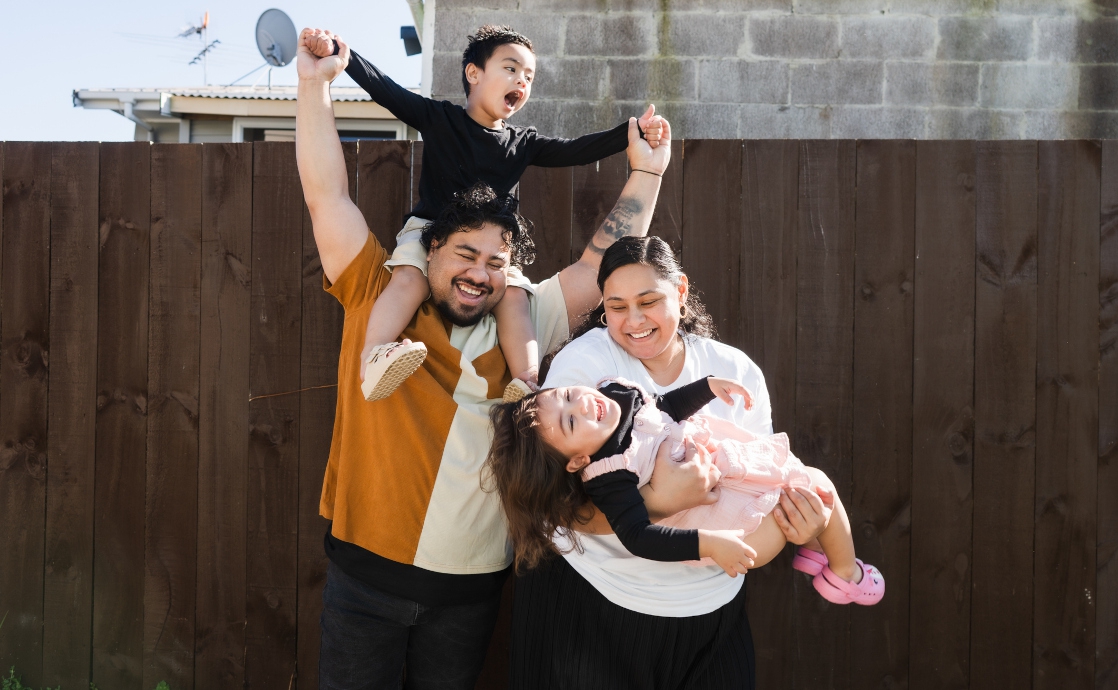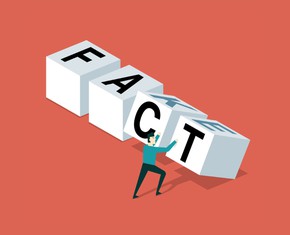The views expressed in our content reflect individual perspectives and do not represent the authoritative views of the Baha'i Faith.
The Baha’i teachings say that until the era when we achieve gender equality and universal education, we cannot even imagine the full spiritual powers an intergenerational family will reveal.
In the meantime, we already have some remarkable spiritual guidance which illustrates how each person in the family—mother, father, son, daughter—has an important and distinctive role to fulfill. It may help to think of these as archetypal roles, as ideals, as possibilities, so as not to get mired in the actual social and familial conditions we see today. The spiritual roles described here really refer to future perfections—to which we can all aspire.
Fathering
Given that biology allows only the mother to bear babies, give birth to them, and nurse them in infancy, it becomes evident why Baha’i principles assign to the father the primary economic responsibility for the family. A Baha’i man is thus required to prepare himself to fulfill such a role, and offer this service to his wife, children, and thereby to the world. But this responsibility denotes a specialized function among equally important functions—and not one of dominance, as in earlier systems:
The integrity of the family bond must be constantly considered, and the rights of the individual members must not be transgressed. The rights of the son, the father, the mother—none of them must be transgressed, none of them must be arbitrary. – Abdu’l-Baha, The Promulgation of Universal Peace, p. 168.
This description of the husband as ‘head’ of the family does not confer superiority upon the husband nor does it give him special rights to undermine the rights of the other members of his family. – The Universal House of Justice, Messages 1963 to 1986, p. 633.
Far from competing with their children, the Baha’i teachings attribute the glory and renown of fathers to how well they succeed in dedicating themselves to passing on and nurturing in their sons and daughters the very best qualities and resources each father has to give. The father, in the Baha’i teachings, has direct responsibility for the education of his children:
The father must always endeavor to educate his son and to acquaint him with the heavenly teaching … In brief, let him instill into his mind the virtues and perfections of the world of humanity. – Abdu’l-Baha, from a tablet to an individual Baha’i.
Mothering
In all of creation, God chose only one venue for His own habitation, and that was the human heart. To whom then did He entrust the early care of these vulnerable wee treasures? He entrusted them to mothers:
O ye loving mothers, know ye that in God’s sight, the best of all ways to worship Him is to educate the children and train them in all the perfections of humankind; and no nobler deed than this can be imagined. – Abdu’l-Baha, Selections from the Writings of Abdu’l-Baha, p. 139.
In the nursery/classroom/studio/workshop of the home, she sets out the toys, tools, and tasks of each child’s early training. This requires that the mother herself have the education and training necessary to equip her children for maturation:
If the mother is educated then her children will be well taught. When the mother is wise, then will the children be led into the path of wisdom. If the mother be religious she will show her children how they should love God. If the mother is moral she guides her little ones into the ways of uprightness.
It is clear therefore that the future generation depends on the mothers of today. Is not this a vital responsibility for the woman? Does she not require every possible advantage to equip her for such a task?
Therefore, surely, God is not pleased that so important an instrument as woman should suffer from want of training in order to attain the perfections desirable and necessary for her great life’s work! Divine Justice demands that the rights of both sexes should be equally respected since neither is superior to the other in the eyes of Heaven. – Abdu’l-Baha, Paris Talks, p. 161.
Being a Daughter
Not surprisingly then, given the weighty responsibilities attributed to motherhood, daughters are accorded a special role in the family commensurate with their future:
The capacity for motherhood has many far-reaching implications which are recognized in Baha’i Law. For example, when it is not possible to educate all one’s children, daughters receive preference over sons, as mothers are the first educators of the next generation. – letter to an individual from the Universal House of Justice, 24 May 1975.
Contemporary research by such agencies as the World Health Organization, UNESCO, the International Labour Organization, and the World Bank has repeatedly shown that the most effective and efficient investment that can be made to increase the domestic welfare of a nation is to invest in the girl child.
Equally, the Baha’i teachings recognize her tender vulnerability and the need to protect her against those who would exploit or abuse her:
As they [the men of the world] do not allow themselves to be the object of cruelty and transgression, in like manner they should not allow such tyranny to visit the handmaidens of God … He is the Protector of all in this world and the next. – Baha’u’llah, from a tablet to an individual Baha’i.
Being a Son
As each generation builds on the achievements of the previous one, the young man has the opportunity to extend the noble qualities of his father, while leaving behind the qualities that should not be carried forward. This selective process is not a matter of genetics; rather, it is a matter of choice and free will, and therefore a spiritual process:
Be the son of thy father and be the fruit of that tree. Be a son that hath been born of his soul and heart and not only of water and clay. A real son is such a one as hath branched from the spiritual part of man. I ask God that thou mayest be at all times confirmed and strengthened. – Abdu’l-Baha, Selections from the Writings of Abdu’l-Baha, p. 117.
The case of the son illustrates the amazing subtlety of guidance in Baha’i teachings. On the one hand, the son is enjoined to be the self-sacrificing care-giver of aging parents:
Day and night he should seek diligently to ensure the comfort and welfare of his loving father and to secure his good pleasure. He must forgo his own rest and enjoyment and constantly strive to bring gladness to the hearts of his father and mother …. – Abdu’l-Baha, from a tablet to an individual Baha’i.
But far from tying a son to dysfunctional servitude, this injunction is constrained by the caveat “loving” – as in, “his loving father.” Recognizing that parents can succumb to being tyrannical and extreme in their demands, Abdu’l-Baha provides this guidance:
Kindness cannot be shown the tyrant, the deceiver, or the thief, because, far from awakening them to the error of their ways, it maketh them to continue in their perversity as before. – Abdu’l-Baha, Selections from the Writings of Abdu’l-Baha, p. 158.
Intergenerational Relations
As we have seen, the Baha’i teachings accord certain distinctive rights to members of the familial social system by their gender and generation. Obligations owing between generations are neither bestowed equally nor reciprocally—they are very specific. Even filial obedience has a constraining caveat to prevent any parent from depriving their offspring of their highest fulfilment:
… for parents must be highly respected and it is essential that they should feel contented, provided they deter thee not from gaining access to the Threshold of the Almighty, nor keep thee back from walking in the way of the Kingdom. – Abdu’l-Baha, from a tablet to an individual Baha’i.
This fabric of social relations, woven by gender and generation, is truly archetypal and not merely physical. Any one of us may take on the role of adult sister or brother, and thereby of aunt or uncle to another’s children. Similarly, we may see ourselves as the adult child of a childless elder, or as grandparent to children other than our own progeny. The ideal roles described in the Baha’i teachings are defined in social terms by gender and generation, not physically by genetics. In this way, the social fabric is strengthened and every person can enjoy the satisfactions of extended connectedness with many others.
















Comments
Sign in or create an account
Continue with Googleor